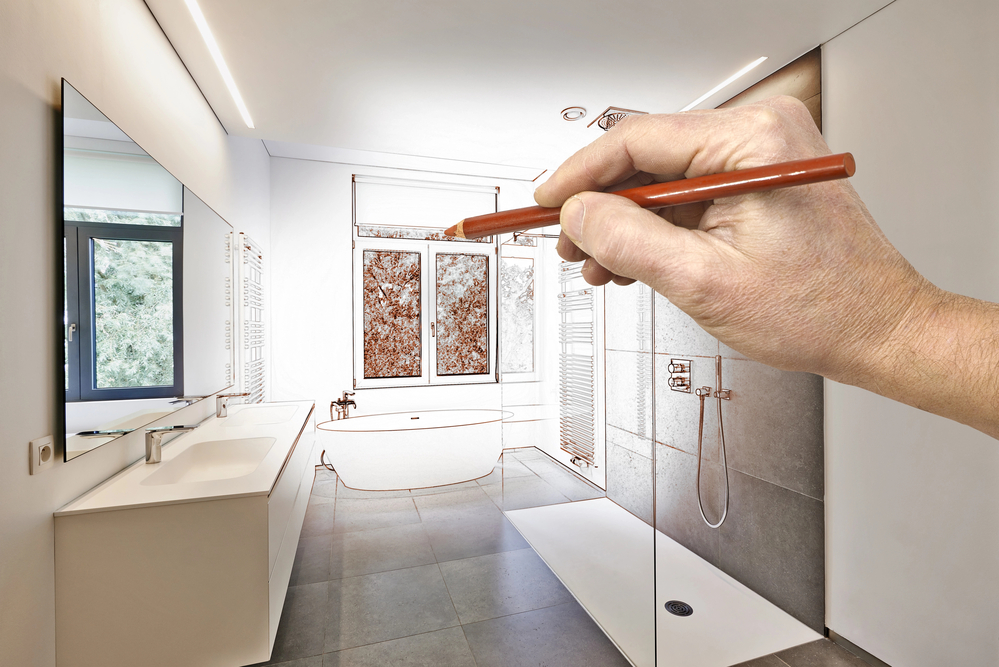Types of Home Renovations You May Be Able to Deduct on Your Taxes
Peacock & French CPAs
May 01, 2024

As a homeowner, you may be eligible to deduct certain home renovation expenses on your taxes. In this comprehensive guide, we'll explore the various types of home renovations that may be deductible on your taxes.
As a homeowner, you may be eligible to deduct certain home renovation expenses on your taxes. These deductions can help reduce your tax liability and save you money. However, it's crucial to understand which types of renovations qualify for tax deductions and the specific requirements that must be met. In this comprehensive guide, we'll explore the various types of home renovations that may be deductible on your taxes, allowing you to more effectively plan for your 2024 taxes and to get the most out of your home renovation plans for this year.
Qualified Medical Expenses
One of the most common deductions for home renovations is related to medical expenses. If you make modifications to your home to accommodate a medical condition or disability, such as installing ramps, handrails, or wheelchair-accessible features, these expenses may be deductible. However, the renovations must be deemed medically necessary and prescribed by a licensed healthcare professional.
Energy-Efficient Improvements
Homeowners who invest in energy-efficient upgrades may also qualify for tax deductions. This includes improvements such as installing solar panels, energy-efficient windows and doors, insulation, and heating/cooling systems. The Energy Policy Act of 2005 offers tax credits for certain energy-efficient renovations, allowing homeowners to recoup a portion of their expenses while reducing their environmental impact.
Home Office Expenses
If you use a portion of your home regularly and exclusively for business purposes, you may be able to deduct renovation expenses related to your home office. This includes renovations to create or improve a dedicated workspace, such as installing built-in shelving, updating lighting fixtures, or adding soundproofing. Keep detailed records and consult with a tax professional to ensure compliance with IRS guidelines for home office deductions.
Capital Improvements
Certain home renovations that add value to your property may qualify as capital improvements, which can be depreciated over time or deducted when you sell your home. Examples of capital improvements include adding a new roof, renovating a kitchen or bathroom, replacing flooring, or upgrading electrical and plumbing systems. Keep thorough documentation of expenses and consult with a tax advisor to determine the appropriate deduction strategy.
Disaster Recovery Expenses
If your home undergoes renovations due to a federally declared disaster, such as a hurricane, flood, or wildfire, you may be eligible for tax deductions. These deductions can help offset the costs of repairing or rebuilding your home, including structural repairs, water damage restoration, and replacing damaged fixtures and appliances. Be sure to keep records of the disaster-related expenses and consult with a tax professional for guidance on claiming deductions.
Accessibility Improvements
Renovations that improve accessibility for elderly or disabled individuals may qualify for tax deductions. This includes installing features like grab bars, accessible showers or baths, wider doorways, and non-slip flooring. To qualify for deductions, these improvements must be necessary for medical reasons and recommended by a healthcare professional.
Historic Preservation Renovations
Homeowners who undertake renovations to preserve or restore historic properties may be eligible for tax incentives. These incentives can include tax credits or deductions for expenses related to preserving the historical integrity of the property, such as restoring original features, repairing historic facades, or conducting archaeological surveys. Consult with a tax advisor and follow the guidelines set forth by the National Park Service for historic preservation projects.
Staying Up on Tax Deduction Laws
For each of these types of deductions, it’s important to note that the deductibility, as well as the amount deductible for your renovations, can change from year to year. It’s essential that you’re aware of the current deductibility, as well as possible future deductibility for it. This knowledge can help you to better plan for those renovations and your tax deductions. For example, if you’re trying to decide between renovating your home office and adding solar panels to your home this year, declining deduction rates for solar panels may be the reason you decide to opt for solar panels now, and renovate your home office next year.
There are several types of home renovations that may be deductible on your taxes, but it's essential to keep detailed records, consult with a tax professional, and ensure compliance with IRS guidelines to maximize your deductions and avoid potential penalties. For personalized guidance on tax planning and deductions related to home renovations, we encourage you to contact Peacock & French CPAs. Our experienced team can help you navigate the complexities of tax deductions for home improvements. Schedule a consultation today to optimize your tax strategy and maximize your savings.